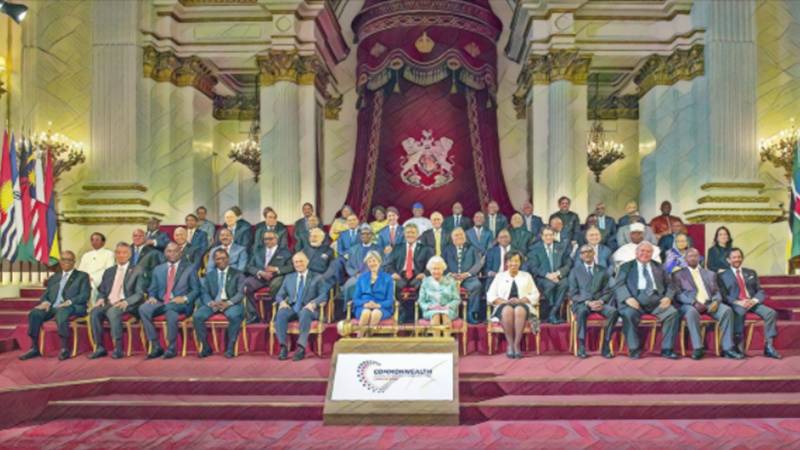
As Pakistan looks forward following a period of prolonged turbulence, economic growth will be high on the agenda. Last week, Prime Minister Shehbaz Sharif remarked upon Bangladesh’s remarkable economic progress at a meeting with the Karachi business community, redoubling on his commitment to delivering growth and a solution to the ongoing balance of payments crisis. It seems that the PM is looking elsewhere in South Asia for inspiration.
The Prime Minister isn’t the only senior political figure talking economic renewal – for months now, a consensus around the need to diversify trade and investment partners in order to drive growth.
As long ago as August 2023, then Federal Minister for the Board of Investment, Chaudry Salik Hussain, emphasised the need to diversify Pakistan’s export partnerships, and to seek foreign direct investment from a wider range of sources. Diversification of trade and investment partners not only helps to open up opportunities for export-oriented businesses but helps to make Pakistan’s economy more resilient to short-term shocks. Trading with a wide range of countries enables Pakistan to withstand supply chain interruptions,
And where better to seek diversification than the Commonwealth, a global club of 56 member states boasting a combined economy of more than $13 trillion, of which Pakistan is a founding member? This oft-forgotten weapon in Islamabad’s foreign policy arsenal serves as a useful tool for high-level engagement with a wide variety of partners. Alongside established players like the UK, Canada, and Australia, the Commonwealth also gives Pakistan an in-built link to emerging powerhouses like Nigeria, Malaysia, and Kenya.
What’s more, trade between Commonwealth member states is 21% cheaper on average, due to long-standing cultural, legal, and historical links between the club’s member states. Most of the Commonwealth’s member states employ a common law legal system, like Pakistan’s, which means fewer awkward compliance checks and greater compatibility when signing contracts or drafting legal agreements.
This all sounds great in theory – what about in practice? Look no further than the ongoing interest of my organisation, the Commonwealth Enterprise and Investment Council (CWEIC), in Pakistan as a market worthy of development and attention.
CWEIC is the Commonwealth’s business organisation, with a mandate to drive trade and investment across the Commonwealth’s 56 member states. With more than 150 strategic partners worldwide, including big names like Standard Chartered, CWEIC works to promote trade and investment across the Commonwealth’s 56 member states, utilising its network of contacts to build lasting and productive relationships. Though headquartered in London, CWEIC operates a global network of hub offices, which enable businesses to connect with opportunities and expertise on the ground.
This oft-forgotten weapon in Islamabad’s foreign policy arsenal serves as a useful tool for high-level engagement with a wide variety of partners
Alongside recent successful events in London and Dhaka, CWEIC will also host the upcoming Commonwealth Business Forum (CBF), which is set to take place in Samoa, in October. CBF will run alongside the biannual Commonwealth Heads of Government Meeting (CHOGM), and represents the most important date in the Commonwealth business diary, drawing together senior business figures across the bloc, high-level policymakers, and civil society stakeholders.
Last week, I personally visited Pakistan to put some meat on the bones of this Commonwealth interest. It was a pleasure to engage with a wide variety of senior figures from the worlds of business and politics, including meetings at the State Bank of Pakistan, the Pakistan Stock Exchange, and the Federation of Pakistan Chambers of Commerce and Industry. FPCCI are worthy of particular thanks, given their instrumental role in enabling me to meet with such high profile figures. It also gave me an opportunity to engage with CWEIC strategic partners based in Pakistan - already, CWEIC has strong links to Pakistan’s business community, and is working to broaden opportunities for collaboration with other businesses in the CWEIC network.
As CWEIC’s interest in Pakistan indicates, the Commonwealth takes Pakistan seriously as a trade and investment destination. Opportunities for closer engagement – such as the upcoming Commonwealth Business Forum – should be seized with both hands, allowing Pakistan and its businesses to make the most of the Commonwealth’s combined market of $13 trillion. Building new relationships, and strengthening old ones, must rest on a foundation of regular dialogue. As the old saying goes, there’s no time like the present.

